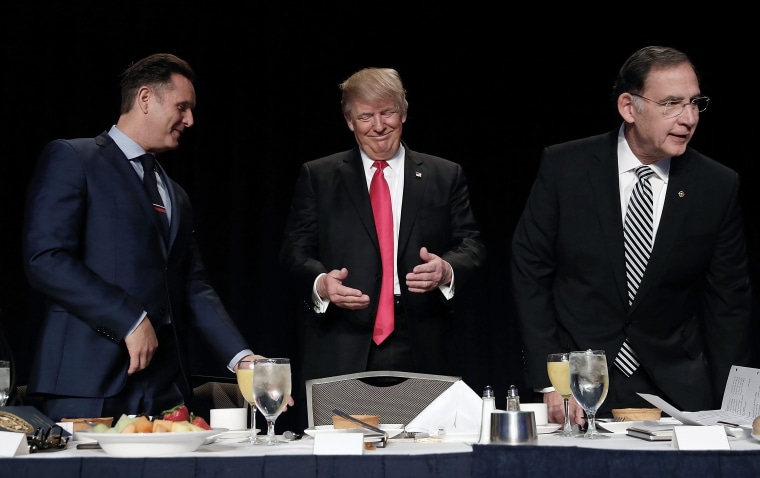In a room full of faith leaders Thursday, President Donald Trump echoed a campaign promise to "get rid of and totally destroy" the Johnson Amendment.
While the line was well-received at the National Prayer Breakfast in Washington, D.C., outside observers pounced — saying that altering the provision would threaten the sanctity of America's separation of church and state and raise issues of religious lobbying.
Doing away with the Johnson Amendment, however, won't be so simple.
What does the amendment do?
Essentially, it's supposed to stop leaders of houses of worship from using the pulpit to campaign for certain politicians.
In a broader sense, it affects 501(c)(3) tax exempt organizations — which includes not only religious institutions, but charities and universities — and says they can't participate in or wield an influence in political campaigns.
"Violating this prohibition may result in denial or revocation of tax-exempt status and the imposition of certain excise taxes," the IRS website says.
Groups can still benefit from another type of tax-exempt status if they do want to engage in political campaigning, but their donors won't see their gifts be tax deductible.
Churches are also allowed to engage in nonpartisan voter drives.
Who was behind the amendment?
Its namesake is President Lyndon B. Johnson, who was a senator representing Texas when a Republican-controlled Congress passed it in 1954. Johnson pushed for the rule in response to a conservative nonprofit that supported a rich political rival — that nonprofit wasn't a church.
The then-Democratic minority leader reasoned that if you don't want to pay taxes, then you also can't be involved in partisan politics.
The amendment didn't appear to be controversial. "There was no record of any debate around the amendment," according to PolitiFact.
What's the argument for repealing the amendment?
While religious freedom groups have had little success bringing an end to the amendment and court challenges have similarly failed, Trump made a lot of noise invoking it at last year's Republican National Convention.
"You have much to contribute to our politics, yet our laws prevent you from speaking your minds from your own pulpits," Trump said addressing his religious conservative base. "An amendment, pushed by Lyndon Johnson many years ago, threatens religious institutions with a loss of their tax-exempt status if they openly advocate their political views."
Trump alone, however, can't change the tax code — and he would need the support of Congress.
Some Republican members are pushing for a so-called Free Speech Fairness Act, which would still bar churches and charities from spending on political ads but allow them to make political statements "in the ordinary course of the organization's activities."

